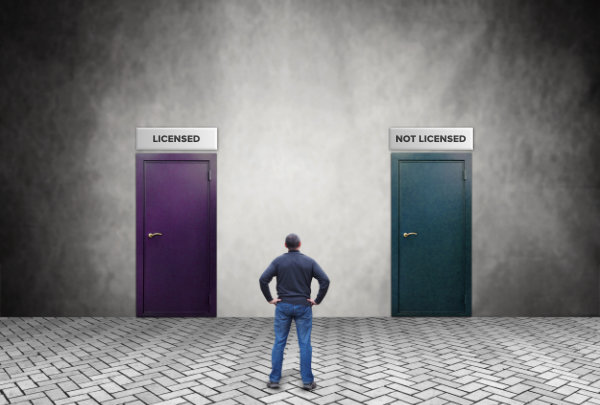What is a Sober Living Home?
Sober living homes (SLHs) provide an affordable, stable and drug-free living environment for people who are in recovery.
SLHs are thought of as a bridge between residential rehab and independent life. But they are an option for people who have not been through formal treatment too. Spending time at an SLH is an optional choice, whereas time at a state-monitored halfway house can be mandated for those who are leaving prison.
You will have to check with specific SLHs to see if they have conditions for residency. Some homes insist that residents attend outpatient treatment nearby. Most homes are single-gender and some cater to specific age groups.
A sober home will usually require that residents engage in active recovery. This can include 12-step programs and/or community service.
SLHs can use random drug tests to check that residents are staying sober. In many cases, abstinence is a condition for continued housing.
SLHs can make a big difference in the recovery outcomes of addicts. A stint at an SLH can fix bonds with loved ones. It can increase the odds of finding regular employment and lower the chances of relapsing or arrests.
How Long Can I Stay at a Sober Living Home?
Stays at a sober home tend to range from one month to about a year. Unlike halfway houses with limits on the duration of stay, SLHs can accommodate residents for as long as they pay rent and comply with house rules, such as curfews.
This enables the resident to transition to self-support and normal life when they feel ready to do so. Low-income residents qualify for government assistance which helps with paying fees.
Does a Sober Living Home Require Licensing?
In general, sober living homes don’t provide services that require health professionals. Thus, government regulations that apply to rehabs don’t extend to SLHs.
But concerns about unethical practices such as hidden fees and ‘patient brokering’ have led to a push for formal standards. Current and proposed legislation covers issues such as house inspections, resident rights, exclusion criteria and processes for funding.
The National Council for Behavioral Health (NCBH) discourages licensing for a number of reasons. They believe that it would place an additional admin burden on states. There are also concerns about higher potential costs for housing. And licensing may bring about violations of the ADA and FHA which protect various groups from prejudice.
As of January 2020:
- Only the following six states require licensing for SLHs: Arizona, Hawaii, Maryland, New Jersey, Utah and Wyoming.
- 12 states have no regulation for sober living houses.
- 36 states promote National Alliance for Recovery Residences (NARR) accreditation standards. SAMHSA recognizes these standards as best practice.
- In most states, SLHs need to be licensed or certified in order to receive public funds or referrals from state-licensed rehabs.
How Can I Find Out If a Sober Living Home is Licensed?
SLHs normally display their credentials on-site and online. You can ask the SLH for details about their compliance with local laws. Thereafter, you can call the state’s licensing office to confirm this information.
The NARR website lists affiliates in various states and you can contact the relevant body to enquire about individual homes.
Should I Choose a Licensed Sober Living Home?
Any SLH you’re considering should have the necessary business permits and should abide by local laws. Most states will not require a license from an SLH that offers no clinical services, drug screenings or formal treatment.
The SLH closest to you may be unlicensed and wholly run by residents. But it may have a good track record. This type of SLH is known as a level one home and it is the most common type of sober home.
Level One homes offer residents more freedoms and are suitable for people who are highly motivated to stay sober. Higher levels going up to level four are for those in earlier stages of recovery.
It’s important to do your research to find an SLH that meets your needs. Google and look into staff bios where relevant. Be sure to ask for a tour of the facility and have a look at the house rules. Strict rules can keep you on the right track, but there may be some that are deal-breakers for you.
If your state promotes certification then look for signs of oversight from NARR, Oxford House, Sober Living Coalition or other reputable third-parties. SLHs with NARR certification employ standard operating procedures for a professional and optimal sober house.
These include the following principles and protocols.
- Operate with integrity.
- Create a culture of empowerment for residents.
- Protect resident information.
- Employ trained staff who apply the social model.
- Provide a safe, healthy and comfortable living environment.
- Promote a functional family dynamic.
- Plan for withdrawal, overdoses and other emergencies.
- Be a good neighbor to surrounding properties
Staying in a Sober Home While in Treatment
Sober living homes can be the perfect place to rebuild your life after undergoing a detox or while attending outpatient treatment. Therapy can take a few months to have positive effects. For many people, it’s not practical or affordable to stay in inpatient treatment for this amount of time.
SLHs accommodate small numbers of residents and cost much less than residential rehabs. This makes sober homes an attractive alternative to long stays in rehab facilities. Some SLHs offer on-site medical care, and this comes with an extra cost. Insurance normally doesn’t cover SLH stays because they’re seen as homes rather than treatment centers.
After rehab, patients often find that they want a low-risk space away from bad influences and triggers. Isolation is unsustainable and does not allow recovering addicts to develop coping skills.
This is why an SLH with its peer support system can be the key to long-term recovery and relapse prevention. The mentoring, routines and support group meetings in an SLH provide structure and help people with SUDs to build habits that will serve them well when they leave the group home.
Get the Help You Need
If you or a loved one are struggling with substance use issues, it is important to receive treatment from a quality treatment center before resorting to sober living homes. Browse through our directory for a quality treatment center near you, and get the help you deserve.
Sources:
- What Did We Learn from Our Study on Sober Living Houses and Where Do We Go from Here?
- National Overview of Recovery Housing Accreditation Legislation and Licensing: A Guide for Oregon Policymakers
- Sober-Living Regulations throughout the Nation, Part I


